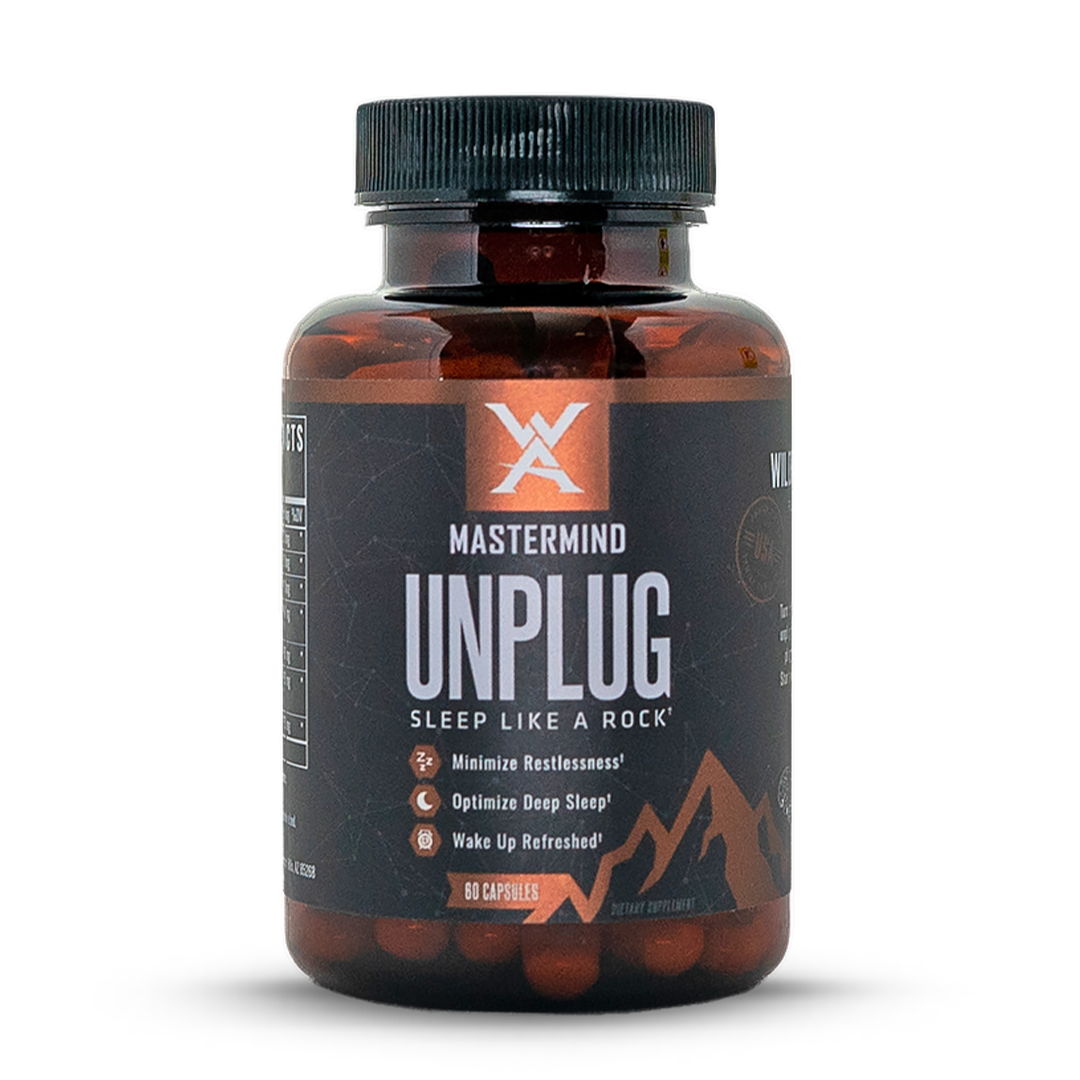What’s the deal with all this sleep talk?
Written By: Carla Denham, MD.
Sleep is back in style. All the scientists, biohackers, moms, athletes, and old hippies/new hipsters agree that quality sleep is essential for- well, just about every aspect of health and well-being. Growing up in the 80’s, admitting to regularly sleeping eight hours would have been like announcing you were TOTALLY a loser; thank heavens that went away with big hair and parachute pants. The why of healthy sleep is well established, what remains murky is the how and when.
So in true American fashion, we have now embarked on the great tradition of overkill, and everywhere you turn there’s another article (ahem), gadget, app, or book about how to improve sleep. Don’t misunderstand – American overkill is one of the reasons this is the best time and place in history to be alive, but it does become somewhat bewildering to try to sort through all the information and tools without losing sleep in the process!
One of my favorites from Einstein: “Everything should be made as simple as possible, but not simpler” is useful here. I’ve attempted to sort through various articles, books, ads and apps as well as my own clinical experience as a psychiatrist to hopefully distill some of the current information into a form that’s simple, but not too.
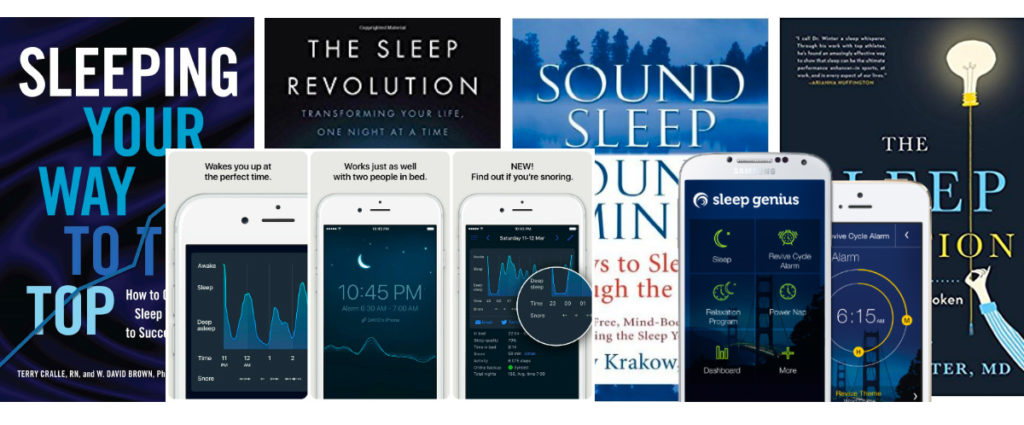 (example sleep books and apps)
(example sleep books and apps)
Chances are, if you’re reading this you are the type of person who makes things happen, who sees a problem and tackles it directly, and who redoubles your efforts when results aren’t satisfactory. That approach works wonderfully in so many situations, but may backfire when it comes to sleep. So first: lighten up. If you’re reading something that warns you’ll shorten your lifespan dramatically if you don’t get 8.5 hours of sleep every night of your life, put it down. If someone tells you your job will threaten your immune system if there’s not a nap room at the office, change the subject. Getting great sleep doesn’t come from rigidly following a list of rules, largely because sleep is regulated by our most ancient ‘animal’ brains, and rules come from the most highly developed ‘human’ parts of our brains.
To put it another way, your ‘animal’ brain (hindbrain) will easily overwhelm your ‘human’ brain (forebrain) to keep you awake and alert unless it is convinced that you are not in danger of being eaten in your sleep. Because the hindbrain operates on ancient physiology and instinct, it cannot be ‘ruled’ with language and logic, only guided by environment and mindset. And while on this topic, I am not a fan of various ‘sleep tracking’ apps and devices beyond maybe a brief time to establish what might be problem areas for you- beyond that they can encourage a preoccupation with the ‘stats’ (sound familiar all you competitive types?)
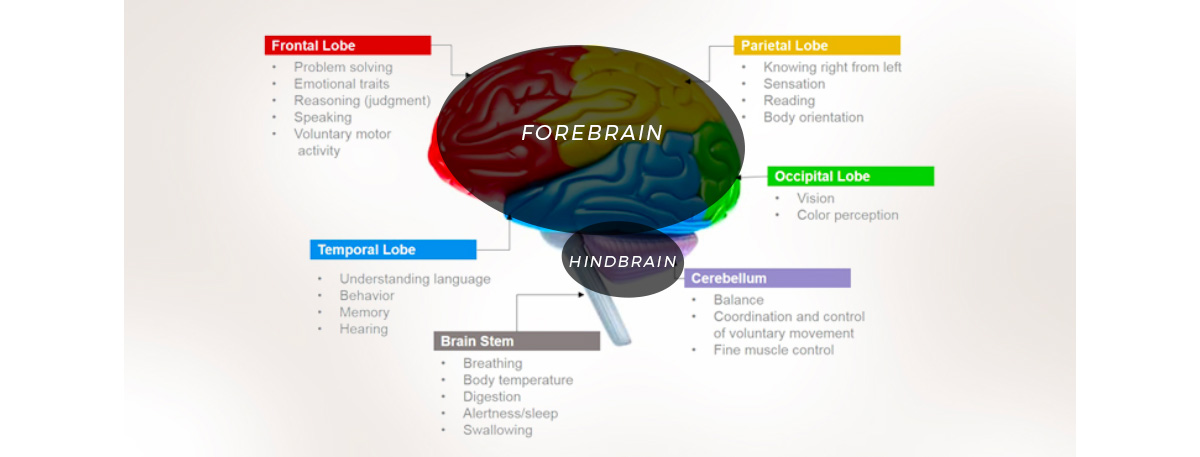
So instead of following somebody else’s prescription for what will ‘give’ you healthy sleep, start with some soul searching and ask yourself the following questions:
- Is sleep a problem or a pleasure MOST nights?
- How do I feel/how am I functioning MOST days?
- Is my body/brain in a sleep/wake rhythm that matches my lifestyle?
- Am I keeping up with the latest science and trying to understand how it applies to me?
Now, ‘lighten up’ is not the same as ‘lie to yourself’. As you honestly ask yourself these questions, keep a couple things in mind. First, chances are you are NOT one of those people who ‘does just fine’ on four or five hours of sleep a night- they do exist but are very rare. If you are one of those people, I’d suggest keeping it quiet since you missed your decade and are quite out of fashion.
Also, what constitutes healthy sleep changes with aging, even for those of us doing so healthfully and gracefully. So, as you ask these questions and come up with plans for improvement, remember the lessons you’ve learned about your food- gradual changes in the right direction, compounded over time and implemented with flexibility and feedback, are what make a difference in the long run.
I’ve gathered the following practical tips to help you evaluate both your external environment as well as your internal mindset and body clock to find areas for improvement. Implement what works for you and give it time- evaluate the effectiveness of your changes over months, not days.
Now let’s look at the ‘how’ of healthy sleep. For most of us, environment is easier to manipulate than mindset, so is the best place to begin.
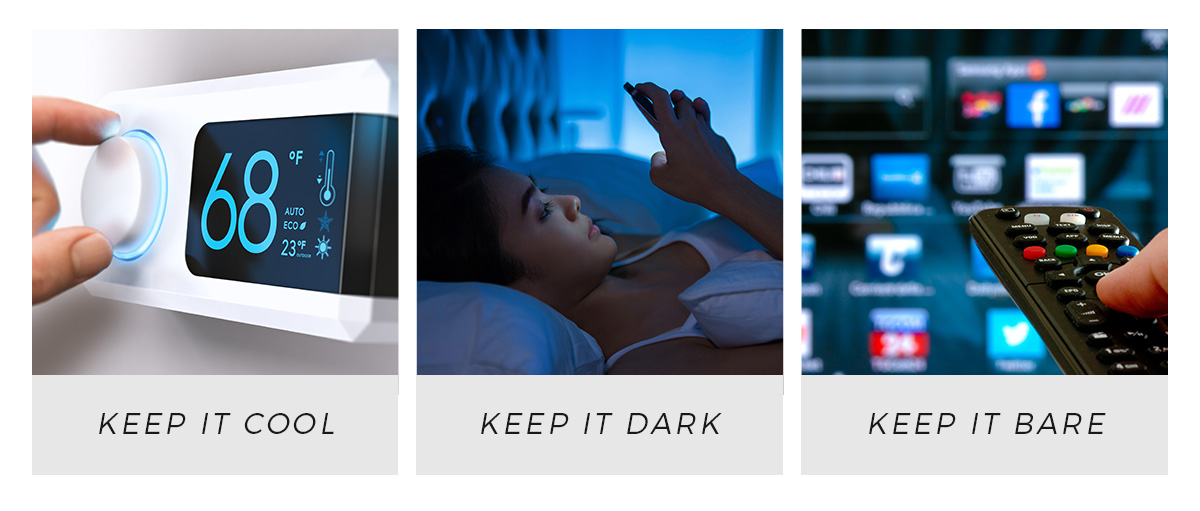
- Keep it cool– experts say between 60-68 degrees F, optimal probably around 65 degrees. This helps your body’s core temperature drop, which is necessary for sleep onset. I know- sounds expensive for you desert dwellers, but most electric companies have ‘time of use’ plans which will keep the cost low. For a Phoenix summer, dropping the temperature to this level in our 2300 sq. ft home costs about $20 more monthly, and is worth every penny! Set the thermostat to start warming the house about a half hour before you want to wake up.
- Keep it dark– you’ve no doubt heard about avoiding ‘blue’ light several hours before bedtime; there are multiple good apps and programs for phones and computer screens that can decrease or eliminate blue light emissions (flux, Twilight are well rated, there are dozens.) A MUCH better idea is to not be using devices at all in the hour or two before bed, and certainly not to check devices during the night (see thoughts below about stimulation, not the good kind.)
- Keep it bare– I know this isn’t popular but I’ll say it anyway- seriously, get the TV out of your bedroom. This is just a bad idea on many counts, think about it. Also, a cluttered, busy environment prevents your brain from relaxing completely. Invest some effort into creating an inviting, peaceful bed and bedroom, however that looks for you.
Mindset and body clock are a little more challenging, but absolutely still malleable! Remember- here we are guiding the ancient parts of our brains that already know what to do, often we just need to get out of the way.
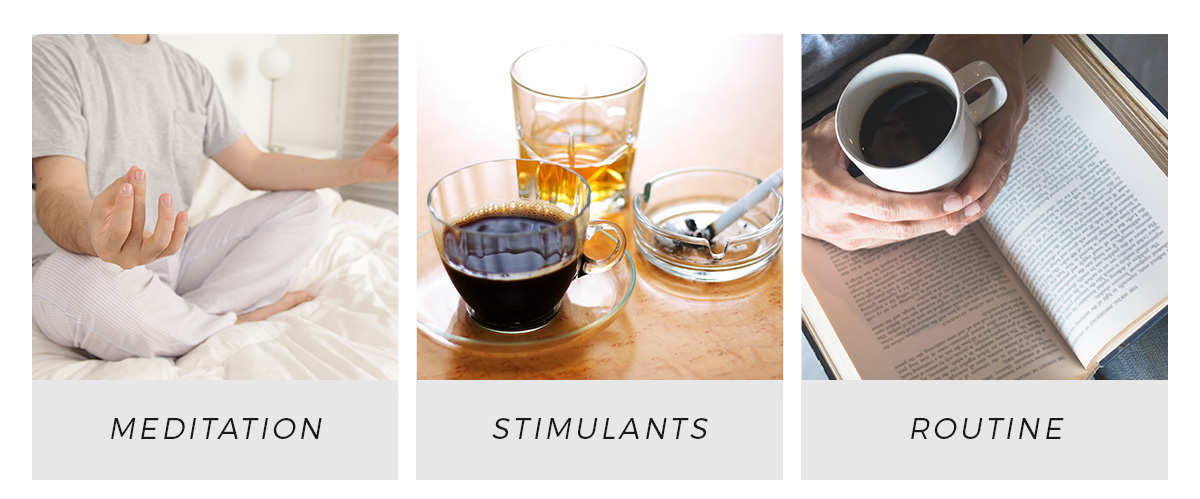
- Routine– it’s not just babies who respond favorably to routine. A predictable, relaxing series of events in the evening tells the brain, ‘all is well, nothing is prowling around the fire tonight.’ Letting the light dim inside as the sun goes down, changing the music choice, sipping a favorite beverage (*see below) about the same time every night goes a long way toward lulling your mind into a more relaxed state.
- Stimulation– remember when your mother used to say she didn’t want you to get overstimulated before bed? She knew (and you do too, admit it) that an overwrought brain will not settle easily. This is another area where it is very tempting to kid ourselves, ‘oh, using my phone before bed doesn’t bother me, because I’ve blocked the blue light.’ I have news- your brain is unique yes, but it’s not THAT unique! No matter what the light wavelength, what that light is delivering is rarely restful or peaceful. Too often it’s work or money related emails, violent video games, or bizarre (even disturbing) social media feeds. Try avoiding your phone and computer for at least 90 minutes before bed for six to eight weeks, then re-evaluate. You’ll be a convert.
- *Chemicals– careful here, more unwanted stimulation!
- Caffeine: consumed closer than six hours to bedtime WILL disrupt your sleep quality, more so every year after 35 or so.
- Nicotine: in any form, really?
- Alcohol: for those without a substance use disorder, likely a drink or two of will not be harmful, and may even have benefits (lots of conflicting data here.) There is no doubt that higher consumption can cause sleep onset, but as it’s metabolized it acts as a rebound stimulant, causing wakefulness or restlessness (ie a disruption in the natural sleep rhythm) several hours later.
- Meditation– the data demonstrating benefit is overwhelming, so much so that even mainstream medicine is fully on board (no small thing, let me assure you, since the accepted wisdom is ‘medicine changes one funeral at a time.’) The best news is, you don’t have to sit cross-legged and hum to yourself for hours at a time …you can reap big benefits with even a few minutes of mindfulness training daily. Again, lots of great apps out there to help, my favorite is Headspace which I recommend to almost all my patients. It’s free to try and then a reasonable amount for a monthly subscription.
So, why we need healthy sleep is a no-brainer, the how is well supported by data (although admittedly not always easy to accomplish)- but the when is still controversial, within certain parameters. No one would argue that for the vast majority of adults 4-5 hours of sleep for an adult on a regular basis simply isn’t enough, or that 10-11 hours is overkill (and really not possible if someone is physically and mentally healthy.) The confusion occurs within this window, and about whether it is ‘healthy’ or ‘normal’ to sleep for eight uninterrupted hours, or whether two shorter periods and/or naps are best, whether to use an alarm clock, etc.
To address these issues for yourself, I would encourage you to return to the third question above- and make sure the changes you make matches the lifestyle you are choosing. Most of us will continue to live ‘on the grid’ for the most part; although hopefully, we punctuate our lives with frequent escapes into the Wild!
That grid usually includes things like bosses who expect us to show up at a designated time, partners who may have a different schedule or sleep habits, and kids and/or pets who have needs at all hours. If waking ‘naturally’ could mean losing a job that generally nourishes you, going without an alarm is probably not the best choice (and if your job isn’t nourishing you, that could be why you aren’t sleeping well in the first place! It’s kinda like everything is related…) If sleeping for two or three short periods a day means that you and your partner almost never go to bed at the same time, your relationship will suffer, no doubt. These points may seem overly simplistic and obvious, but they are worth stating again- since I hear smart people all the time talking about ways they will improve their eating habits, sleep quality, relationships, etc, and then describe ‘programs’ which are completely out of character or out of reach.
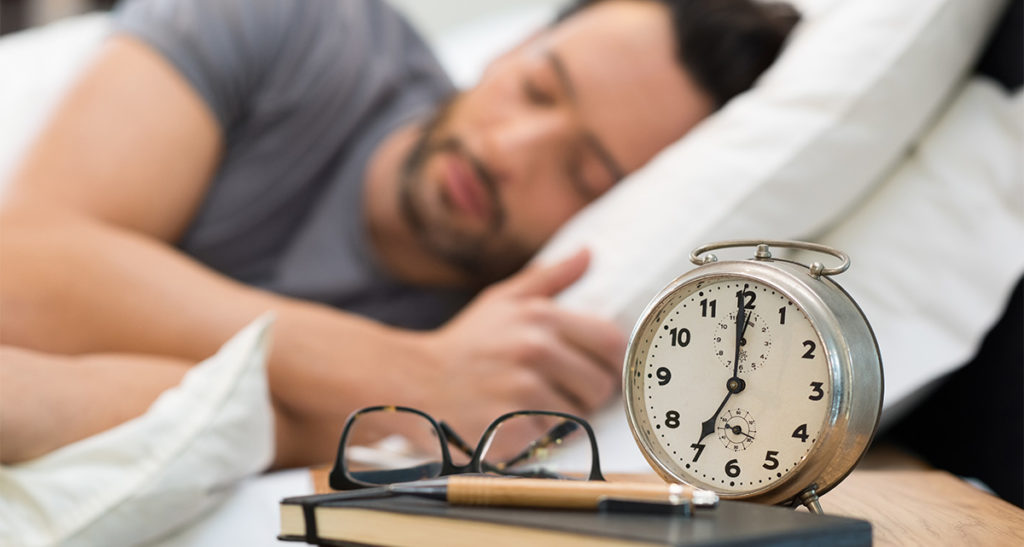
Ask yourself some questions about changes you would like to see, and (within reason) try not to worry as much about the ‘when and how long’ in the beginning. Most of the environment and mindset tips above are about getting out of your brain’s way and letting it naturally ease into a rhythm that fits your physiologic needs and your values.
I realize you high achievers (aka Wilderness Athletes!) out there may be uncomfortable with a more easygoing approach, but consider this: you make choices about what you eat and drink, and you keep the air you breathe as clean as possible, but then you let your brain and body go ahead and take care of the actual digestion and breathing on its own. Sleep is similar- really try to understand your body’s needs, change what you can directly control, give it three or four months, and re-evaluate.
Incremental changes over time coupled with honest reflection about personal, individual results will not only create benefits with real lasting power, but will also provide a way to sift meaningfully through the ever-increasing information available about sleep (and nutrition, exercise, etc, etc.) Since much of the information is presented in a ‘this is THE answer!’ sort of way, it pays to remember- we will never have THE permanent answers! (Remember whole wheat??) Still, amazing things are happening in every field, every day, and learning what can apply to you individually is not only intriguing, but also a lot of fun. Have at it, and then go get a good night’s sleep.
Get your hands on Midnight Build for better sleep, CLICK BELOW!
*These statements have not been evaluated by the Food and Drug Administration. This product is not intended to diagnose, treat, cure, or prevent any disease.







